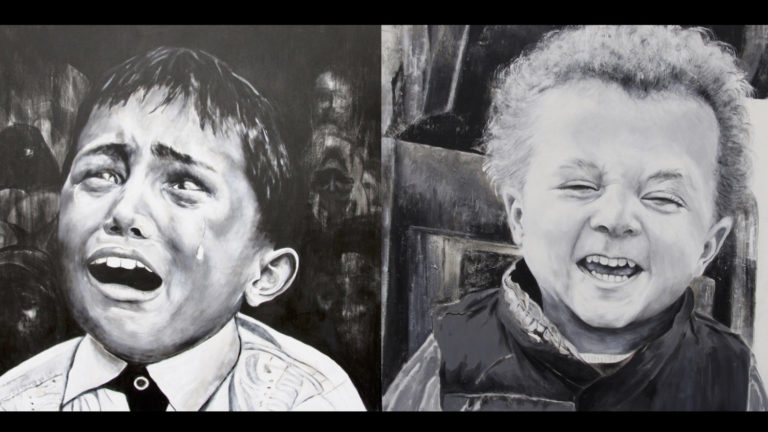First Reading: Acts 18:9-18
Responsorial Psalm: Ps. 46(47):2-7
Gospel Reading: John 16:20-23
____________________________________
There is a well-known phenomenon in psychology called the “hedonic treadmill” (hedonic adaptation) – the observed tendency of humans to quickly return to a relatively stable level of happiness despite major positive or negative events or life changes. In essence, the things that made you happy or miserable suddenly have no effect on you in the true sense. Negative events such as loss of relationships, properties, betrayal, the demise of a loved one, etc., will not typically keep a person depressed forever; eventually, one’s mood will likely revert towards the happiness baseline. The hedonic adaptation can be a double-edged sword, offering protection from the impact of harmful environments while constraining potential gains in happiness over the long term. This is basically saying that no matter what happens, nothing can bring you permanent happiness or permanent sadness. With this theory, it should be understood that our life is a mix of opposites and contraries. It is an intertwining of such opposing entities as pleasure and pain, happiness and sorrow, enjoyment and stress, etc. During times of unpleasant situations, people generally think that their lives are the most miserable and their share of happiness is the least, but will this remain permanently the case? Today’s readings teach us otherwise.
For some time now, we have been graced with Christ’s conversation with his disciples at the Last Supper. There, Jesus revealed his plan of leaving them and returning to the Father. He also made it clear that the disciples must face difficulties, trials, challenges, setbacks, persecutions, etc., in the world on account of him. We are told that they were filled with sadness; they felt they would not see their Master anymore; the feelings of loneliness, fear, dejection, etc. enveloped them. But Jesus had to reassure them of his constant presence with them through the “Advocate” – the Spirit of Truth. In today’s gospel reading, Jesus continues to strengthen their hope that, even if the world persecutes them and fill their hearts with sorrow, their sorrow will turn to joy because of his presence with them. Even the psalmist expresses likewise in Ps. 16:11 – “joy in the Lord’s presence.”
When Jesus ascended into Heaven (his physical disappearance), he did not depart from the disciples spiritually but inaugurated a form of deeper presence among them through the Holy Spirit. Put differently, the ascension freed Him from the limits of the earthly condition and made it possible for Him to have a personal and intimate contact with each one of us, being with us always through the Holy Spirit even in the midst of difficulties, challenges and sorrows. Likewise, in the midst of the challenges of the mission, St. Paul experienced the presence of Jesus, as the first reading tells us: “The Lord spoke to Paul in a vision, ‘Do not be afraid to speak out, nor allow yourself to be silenced: I am with you.” Inasmuch as Paul suffered persecution, the presence of Christ remained a consolation for him. Little wonder he wrote in one of his epistles: “I am filled with consolation and overflowing with joy in the midst of all our tribulations” (2Cor. 7: 4).
Dear friends in Christ, it is true that we also have our sorrows and challenges. This present period of the pandemic of COVID-19 has undoubtedly increased the sorrows of many. Many have questioned the presence of the Lord, some have lost hope and trust in the risen Lord. However, the experiences of the early Christians in the midst of challenges and persecutions, and the consoling words of Christ: “I am with you always; your sorrow will turn to joy,” should console us. We are called to endure moments of trials like this with courage. Therefore, no matter what you might be experiencing right now; no matter the nature of your sorrow, be it in sickness, financial instability and loss, division in the family, fear of the pandemic, uncertainties of the future, etc., instead of feeling bad in these sorrowful phases, we should celebrate because, next in the queue would be the joyful period as promised by Christ, either in this life or in the world to come. This should remain our greatest hope.
Shalom!
© Fr. Chinaka Justin Mbaeri, OSJ
Paroquia Nossa Senhora de Fatima, Vila Sabrina, São Paulo, Brazil
nozickcjoe@gmail.com / fadacjay@gmail.com


